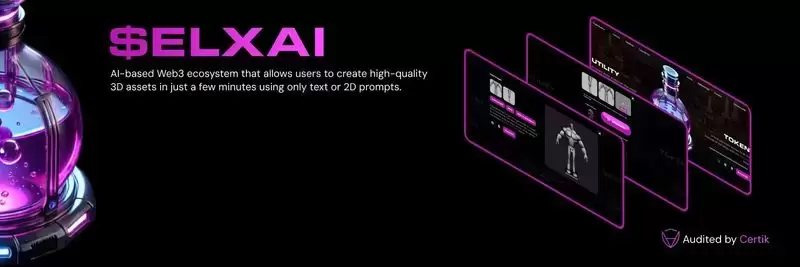 |
|
 |
|
 |
|
 |
|
 |
|
 |
|
 |
|
 |
|
 |
|
 |
|
 |
|
 |
|
 |
|
 |
|
 |
|
Cryptocurrency News Articles
Aptos Eyes Trimming Staking Rewards to Fund New Initiatives
Apr 19, 2025 at 08:05 pm
The Aptos community is currently evaluating a new governance proposal, AIP-119, that could halve staking rewards over the next three months. It seeks to reduce the current annual staking yield from around 7% to 3.79%.

Aptos Labs is currently planning to cut the cryptocurrency's staking rewards by more than half over the next three months.
Aptos Labs senior engineer Sherry Xiao and network core developer Moon Shiesty on April 18 introduced the proposal, which aims to reduce the current annual staking yield from around 7% to 3.79%.
The proposal, AIP-119, describes staking rewards as a “risk-free” benchmark, similar to the role of interest rates in traditional finance.
According to the proposal, the current yield rate of 7% is too high and discourages productive use of capital within the ecosystem.
Instead, the authors aim to lower the yield to around 3.79%. They hope this change will encourage network users to pursue more dynamic economic activities beyond passive staking.
According to them, this could stimulate demand for more active strategies, such as restaking, MEV extraction, and participation in DeFi.
“I expect any lowered staking demand [to] be reduced by the reduction in inflation from this AIP and new reward-generating opportunities launching in the next 6 months, and other sources of defi rewards,” Shiesty added on X.
Moreover, Shiesty pointed out that a portion of the saved emissions could instead support initiatives like liquidity incentives and gas fee subsidies. He also mentioned that stablecoin-related programs may benefit, especially in early-stage Layer 1 experiments.
Despite the proposal’s broader ambitions, AIP-119 raises concerns about validator sustainability. Smaller operators with lower stake volumes could face financial strain.
Shiesty pointed out that operating a validator node in a cloud environment can cost anywhere from $15,000 to $35,000 per year. Currently, over 50 validators manage under 3 million APT each, accounting for around 9% of the network stake.
Due to this, the proposal introduces a validator delegation program to support these smaller players. The initiative would allocate funds and delegate tokens to help maintain decentralization, geographic diversity, and community involvement.
Meanwhile, the community’s reaction to the proposal has been mixed.
Yui, COO of Aptos-based Telegram game Slime Revolution, warned that smaller validators might be pushed out. The executive emphasized the importance of finding a balance that encourages innovation without sacrificing decentralization.
“While it could drive innovation, I’m concerned about the potential impact on smaller validators and decentralization. We need to make sure the move doesn't push out smaller participants! Aptos should focus on balance and long-term resilience,” Yui wrote.
However, Kevin, a researcher at BlockBooster, argued that the shift could benefit Aptos in the long run. He noted that high inflation often masks weak product-market fit. Lower inflation, on the other hand, forces developers to build real demand.
Kevin also suggested that reduced token emissions might improve APT's scarcity and boost its price, potentially balancing out the lower staking yield.
“We expect APT’s price to grow due to the reduced inflation rate, and validators' actual returns may offset the APY decline through price appreciation, forming a positive cycle,” Kevin concluded.
Disclaimer:info@kdj.com
The information provided is not trading advice. kdj.com does not assume any responsibility for any investments made based on the information provided in this article. Cryptocurrencies are highly volatile and it is highly recommended that you invest with caution after thorough research!
If you believe that the content used on this website infringes your copyright, please contact us immediately (info@kdj.com) and we will delete it promptly.
-

- Crypto Whale Establishes a Firm Bearish Stance on the HYPE Token, Disrupting the Mood
- Apr 21, 2025 at 09:10 pm
- In a shocking and tactical move, a crypto whale has established a firm bearish stance on the HYPE token, disrupting the mood on the entire HyperLiquid trading platform. Only 10 hours ago, the whale made a large deposit of $5.0 million in USDC and then hastily placed short orders worth 91,267.52 HYPE tokens
-

-

-

-

- Elixir AI Disrupts the Crypto World with Its Cutting-Edge 3D Content Generation Platform
- Apr 21, 2025 at 09:00 pm
- In just 24 hours, Elixir AI made waves across the crypto world. Officially launched on April 19, the AI-powered 3D content generation platform saw its native token $ELXAI skyrocket by 10x
-

- The Next Big Thing in Web3? Bitcoin Consolidates as Investors Eye Three Top Altcoins: Mantra, Memecoin, and Pi Network
- Apr 21, 2025 at 09:00 pm
- The broader crypto market held steady last week as Bitcoin consolidated and investors kept one eye on macro tensions between Donald Trump and Jerome Powell.
-

-

-




























































